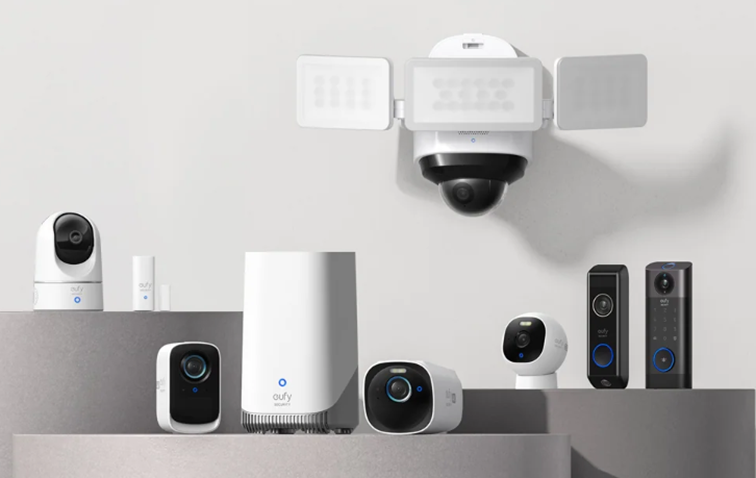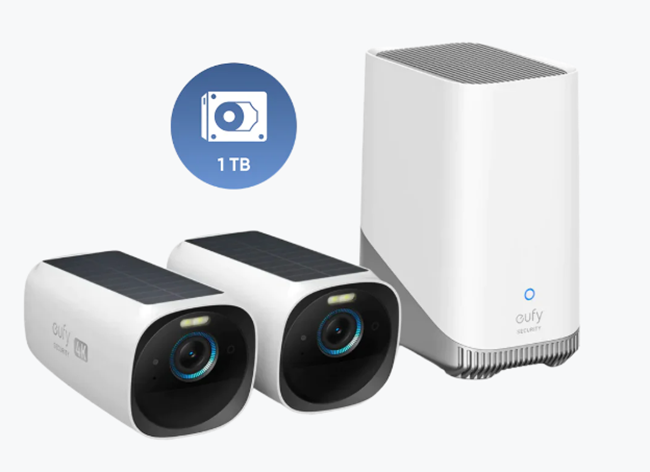A security camera system is essential for protecting your house from invasions. However, some homeowners choose cameras that do not have Wi-Fi, either for increased security or to avoid relying on Internet access. Security cameras without Wi-Fi have several advantages, including increased privacy and simplicity. These systems are appropriate for people who do not want the risk involved with online hacking or who just want a dependable and simple monitoring solution. In this post, we’ll go over critical elements and features to help you select the best security camera for your requirements without relying on Wi-Fi.

What to Consider When Selecting a Security Camera Without Wi-Fi
Camera Features to Look for
Prioritizing necessary functions is crucial when choosing security cameras without Wi-Fi. To guarantee crisp image quality, look for cameras with high resolution, such as 1080p or greater. For monitoring purposes, a motion detection function is essential since it will notify you of any movement. For efficient monitoring in low light, cameras with night vision should be taken into consideration. Check the field of vision as well since this affects the area that your camera can capture. Additionally, some cameras include two-way audio, which increases their overall efficacy for home security by allowing conversation with guests or attackers.
Wired vs. Wireless Options: What’s Best for You?
Choosing between wired and wireless cameras is one of the most significant options when purchasing a non-Wi-Fi camera system. Wired cameras, which are directly connected to your home’s electrical system, often provide more steady performance and constant power. They are perfect for big properties that require a continuous connection. Wireless cameras, on the other hand, are powered by batteries and provide more positioning freedom. They are simpler to install, and some even integrate with cellular networks for remote monitoring. Before making a decision, think about your house plan and if you require a permanent or flexible location.
Battery Life and Power Sources
Battery life is a key consideration when selecting security cameras without wifi. Cameras with longer-lasting batteries are more handy, particularly for outdoor use where regular recharging may be problematic. Look for cameras that utilize rechargeable batteries or may be linked to a power source for continuous usage. Some versions have solar panel choices, making them ideal for isolated places or areas with few electricity outlets. Consider the camera’s power usage; those with motion sensors or infrared features may drain batteries more quickly, reducing overall system efficiency.

Are Non-Wi-Fi Security Cameras Effective for Home Protection?
How to Ensure Effective Monitoring Without Wi-Fi
If you set up your non-Wi-Fi security cams correctly, they can still be very good at keeping your home safe. Place cameras in smart places around your property, like near doors, windows, and driveways, so they can watch everything the best way possible. To keep videos directly on the camera, look for cameras that have SD cards or external hard drives that can be used for local storage. This means you don’t need a Wi-Fi link to watch from afar. Additionally, make sure that the camera has enough battery life or power sources to keep tracking going all the time. When placed and set up correctly, security cams that don’t have Wi-Fi can provide a good defense.
Choosing the Right Lens and Resolution for Clarity
Selecting the appropriate lens and quality is crucial to guaranteeing that your security camera captures dependable and clear video. Higher resolution cameras, such as 1080p or 4K, will provide more clarity, particularly when photographing license plates or face characteristics. The focal length of the lens also influences the zoom and field of view of the camera. While a telephoto lens works better for focusing on particular locations, a broader lens is best for covering bigger areas. For clear surveillance around the clock, make sure the camera has capabilities like infrared or night vision and at least a 130-degree field of view.
Privacy Considerations and Data Storage
Privacy and data storage are important considerations when utilizing non-Wi-Fi security cameras. Since these cameras don’t use cloud services, video is usually saved locally on external hard drives or SD cards. To safeguard your recorded video, make sure the storage device you use has enough space and security safeguards. It’s also a good idea to encrypt data that has been saved to avoid unwanted access. Certain cameras come with built-in capabilities like password security or the ability to automatically remove previous videos after a predetermined amount of time. Always make sure the storing mechanism conforms with local laws pertaining to data protection and surveillance.
Conclusion
Choosing the proper security cameras without Wi-Fi may provide both peace of mind and effective home defense. When choosing the best system, evaluate the camera’s capabilities, battery life, power sources, and resolution to ensure it fits your security requirements. Non-Wi-Fi cameras can provide dependable surveillance when properly configured, with the added benefit of more privacy because they do not require internet access. Whether you pick wired or wireless, taking the time to select the proper camera protects your home’s long-term safety and security, free of the threats associated with internet vulnerabilities.

